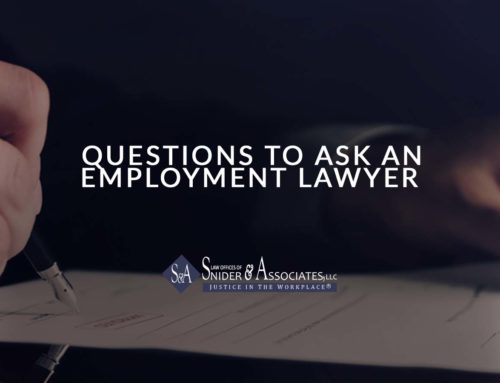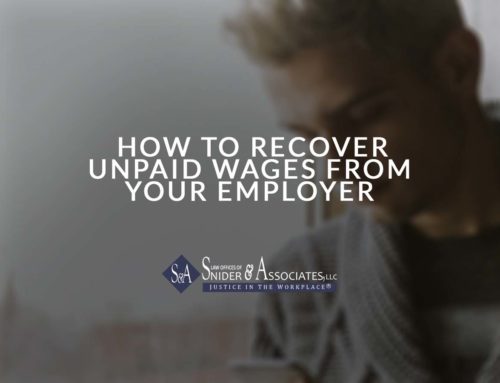Can a Lawyer Help with Collective Bargaining Negotiations?
Unlike traditional workplace negotiations between an employer and an employee, a collective bargaining negotiation takes place between an employer and a labor union. In these negotiations, workers come together in their union to negotiate terms in their employment contract with their employer.
Wages, hours, working conditions, and benefits are often discussed, and, depending on whether the company is private or public and what’s allowed, the union may go on strike if negotiations don’t end in an agreement. There are various statutes in place which oversee collective bargaining negotiations. When disputes occur, labor law attorneys can get involved, as well.
At Snider & Associates, LLC, our team understands the collective bargaining process. We can assist you in negotiating a fair employment contract and resolving any disputes that may arise.
Laws Covering Collective Bargaining
The Railway Labor Act of 1926 was put into effect to allow collective bargaining for railroad workers, airline workers, and numerous other transportation workers. Allowing collective bargaining is a privilege because, with this power, union workers can stand together against their employers and have a solid voice.
The National Labor Relations Act of 1935 (NLRA) protects the rights of employees and encourages collective bargaining. The NLRA applies to almost all private-sector employees but excludes federal, state, or local government employees.
Common Disputes That Arise between Employers and Unions
Common disputes that arise in the collective bargaining negotiation process between employers and unions usually involve not following the outlined duties of the process.
For example, the employer has a duty to supply information to employees before making changes in the employment contract. If wages are reduced and the reason involves financial issues within the company, there needs to be information given to the union to back this up.
Other duties that can result in disputes if not followed involve the duty of the employer to bargain in good faith and the duty to consult with the union first on all work-related changes.
What Is a CBA?
Once the collective bargaining process is complete, a CBA will be drawn up, which is a collective bargaining agreement. This legal agreement is a form of labor contract, and it will lay out all of the new policies that both the employer and the union have agreed to.
Aside from explaining the new policies, the CBA may also contain a procedure to resolve complaints about the contract and how to handle employee terminations.
Contact a Labor Law Attorney for Help with Negotiations
The collective bargaining negotiation process can be complex, depending on what needs to be discussed between the employer and the union and whether both parties can come to an agreement. An employment attorney from Snider & Associates, LLC can often help by determining the collective bargaining goals of the union, drafting a proposal, and creating a strong negotiation strategy.
We know how important it is to assert your rights and to feel satisfied with your place of work. If you’re ready to discuss your case with a labor law attorney, call 410-653-9060 or fill out the contact form below to schedule a consultation.



